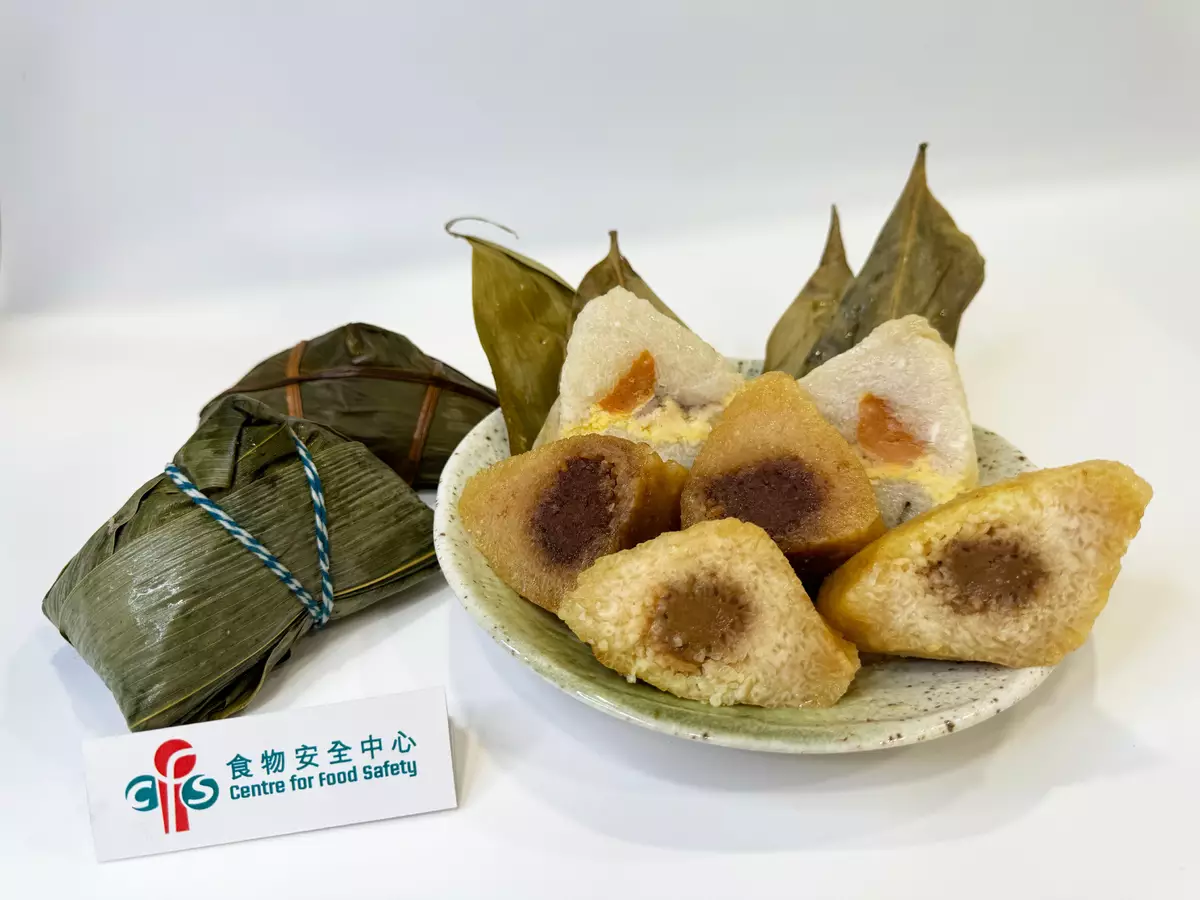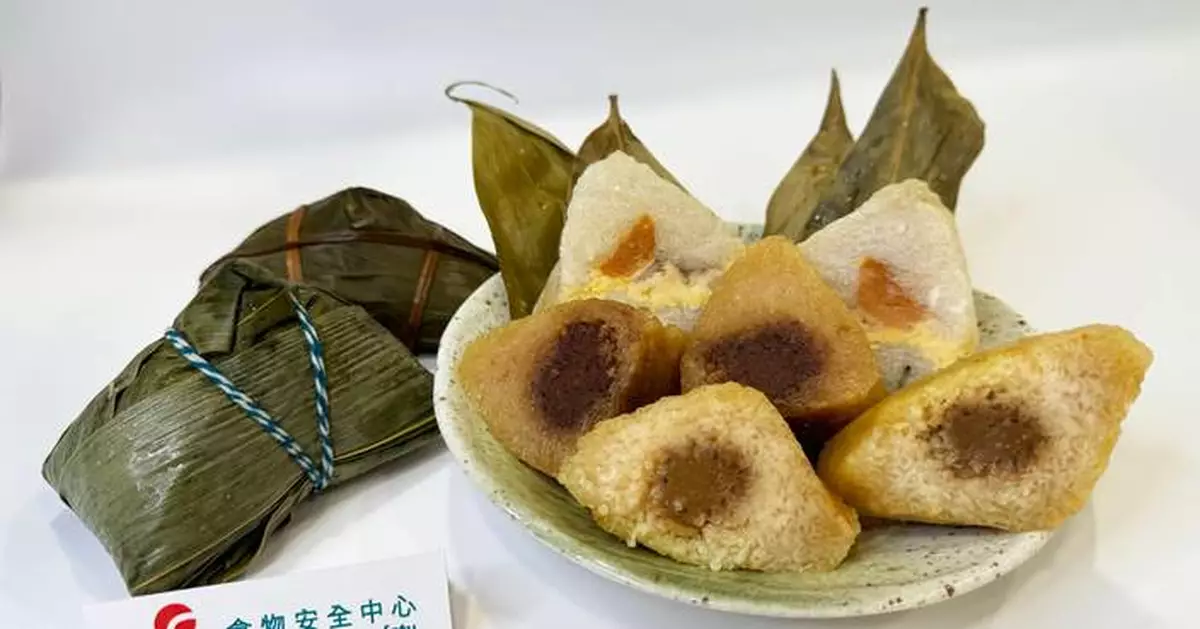Cfs reveals findings from first phase of seasonal food surveillance on rice dumplings
The Centre for Food Safety (CFS) of the Food and Environmental Hygiene Department today (May 27) announced that the test results of 46 rice dumpling samples collected under a recently completed seasonal food surveillance project on rice dumplings (first phase) were all satisfactory.
Rice dumplings are a popular festive food for the Tuen Ng Festival. The project aims to provide information on safe consumption of rice dumplings to consumers and the trade in a timely manner.
"The CFS collected samples of rice dumplings from different retail outlets (including online retailers) and food premises (including restaurants and food factories) for chemical and microbiological analyses. The chemical analyses included tests for colouring matters, preservatives, metallic contamination and pesticide residues. The microbiological analyses covered Salmonella, coagulase-positive staphylococci organisms, Clostridium perfringens and Bacillus cereus," a spokesman for the CFS said.
The spokesman reminded members of the public to observe the following food safety tips in purchasing, preparing, storing and consuming rice dumplings:
Buying rice dumplings
-------------------------
* Buy rice dumplings from reliable outlets;
* When purchasing non-prepackaged rice dumplings, choose those that are securely wrapped in wrapping leaves; and
* When purchasing prepackaged rice dumplings, check the expiry date and whether the packaging is intact.
Home-made rice dumplings
-------------------------------
* Buy wrapping leaves from reliable suppliers and avoid leaves that are unnaturally bright green or with chemical odours;
* Wash hands and utensils thoroughly before and after handling food; and
* Handle raw and cooked food separately to avoid cross-contamination.
Storing and preparing rice dumplings
------------------------------------------
* Consume rice dumplings as soon as possible and avoid prolonged storage;
* Both the glutinous rice and stuffing should be well covered until the rice dumplings are unwrapped. Do not come into direct contact with the strings upon cooking to prevent contamination at all times.
* Store rice dumplings at 4 degrees Celsius or below, or store them properly according to the instructions on the package if they are not consumed or cooked immediately;
* Keep cooked rice dumplings that are not consumed immediately in a covered container and put them in the upper compartment of the refrigerator. Keep raw food in the lower compartment to prevent cross-contamination;
* Reheat rice dumplings thoroughly until the core temperature reaches 75 degrees C or above before consumption;
* Do not reheat rice dumplings more than once; and
* Consume reheated rice dumplings as soon as possible.
Consuming rice dumplings
------------------------------
* Wash hands with running water and liquid soap, and rub for at least 20 seconds before consumption; and
* Reduce seasonings such as soy sauce or granulated sugar during consumption.
The spokesman said, "Rice dumplings in general are relatively high in energy, fat and salt. During the festival, people should maintain a balanced diet, and consume rice dumplings moderately, with due consideration of their health condition. People are recommended to share rice dumplings with their family members and friends, as this not only enhances the festive atmosphere, but also allows them to taste rice dumplings of different flavours and avoid over-consumption. People are also advised to make use of nutrition labels on prepackaged food to compare their nutritional contents for healthier food choices."
The spokesman also reminded the food trade to purchase food ingredients from reliable suppliers and maintain proper records to facilitate source tracing when necessary. They should follow Good Manufacturing Practice in the preparation of food products and comply with legal requirements when using food additives. The spokesman advised the food trade to adopt the Hazard Analysis Critical Control Point System to identify, assess and control possible hazards in the food production process.
The CFS will continue to conduct surveillance on rice dumplings in the second phase, the results of which will be released in due course to ensure food safety.

CFS announces results of seasonal food surveillance on rice dumplings (first phase) Source: HKSAR Government Press Releases










